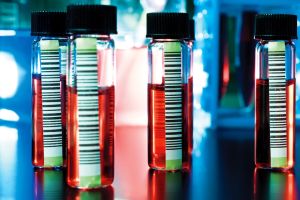22 Jun 2021
News
Nuffield Council on Bioethics welcomes Church of England’s call to value people with Down’s syndrome
We welcome the Church of England’s motion on valuing people with Down’s Syndrome in light of the roll-out of non-invasive prenatal testing (NIPT) in the NHS later this year.
The motion will be debated at the annual meeting of the General Synod on Saturday 10 February. Pregnant women who are found to have a ‘high chance’ of their fetus having Down’s, Edwards’ or Patau’s syndrome following an initial screening test will be given the choice to undergo NIPT or a diagnostic test. The new screening process should mean fewer false results and fewer diagnostic tests, which carry a small risk of miscarriage.
The Council has published a report that concludes women and couples should be able to access NIPT, but only within an environment that enables them to make free and informed choices about prenatal testing and pregnancy. The Council calls for better information and support for women and couples undergoing prenatal screening, and for disabled people and their families to be better supported, included and valued in society. We therefore commend the Church of England’s motion to ensure it includes and values people with Down’s Syndrome and their families.
The way that disabled people are supported or viewed in society can play a significant role in influencing reproductive decisions for women and couples.
Hugh Whittall, Director of the Nuffield Council on Bioethics said: “The Church of England and other religious organisations play an important role in our communities. Ensuring that their activities offer a real welcome for people with Down’s syndrome and their families, and all disabled people, could make a positive difference to people’s lives.”
The Church of England’s motion further echoes the Council’s recommendations by supporting access to information that new, safe antenatal screening techniques provide, and calling on the Government to ensure that parents who have been told that their unborn child has Down’s syndrome will be given comprehensive, unbiased information about the condition. The NHS has been developing new written information materials and a training programme for healthcare professionals to accompany the roll-out of NIPT. The work has had the active involvement of groups that represent and support people with Down’s syndrome and the other conditions being tested for, such as the Down’s Syndrome Association. However, we have ongoing concerns about the provision of NIPT in the private healthcare sector.
Hugh Whittall said: “We are concerned that some private providers may give out information that emphasises the accuracy of the test, but does not make clear its limitations. We are concerned that some women are not being supported well enough to make informed decisions, and that some private services may be failing to provide adequate aftercare.”
Notes to Editors
- The Nuffield Council on Bioethics is an independent body that has been advising policy makers on ethical issues in bioscience and medicine for more than 25 years. As well as being a key UK partner on international networks of advisory bodies, the Council has an international reputation for advising policy-makers and stimulating debate in bioethics. The Council is funded by the Nuffield Foundation, the Medical Research Council, and Wellcome.
- The Council’s report Non-invasive prenatal testing: ethical issues, published in 2017, considered at this early stage of its use, how NIPT could change the way we view pregnancy, disability and difference, and what the wider consequences of its increasing use might be.
- The Church of England’s motion to be discussed on 10 February 2017 is as follows:
VALUING PEOPLE WITH DOWN’S SYNDROME (GS 2088)The Bishop of Carlisle to move:That this Synod, valuing all human life equally and celebrating the advances in medical technology which help alleviate human suffering:
- affirm the dignity and full humanity of people born with Down’s syndrome;
- request dioceses, parishes and the NCIs to work to review their activities and the provisions they make for people with Down’s syndrome and their families, to ensure a real welcome for all;
- support the continued development of ante-natal care including access to information that new, safe screening techniques provide; and
- call on Her Majesty’s Government and relevant professional bodies to ensure that parents who have been told that their unborn child has Down’s syndrome will be given comprehensive, unbiased information with regard to this condition
Contact
Sophia Griffiths
Communications Officer
Nuffield Council on Bioethics
Phone: 020 7681 9622, 07551 159670

Share